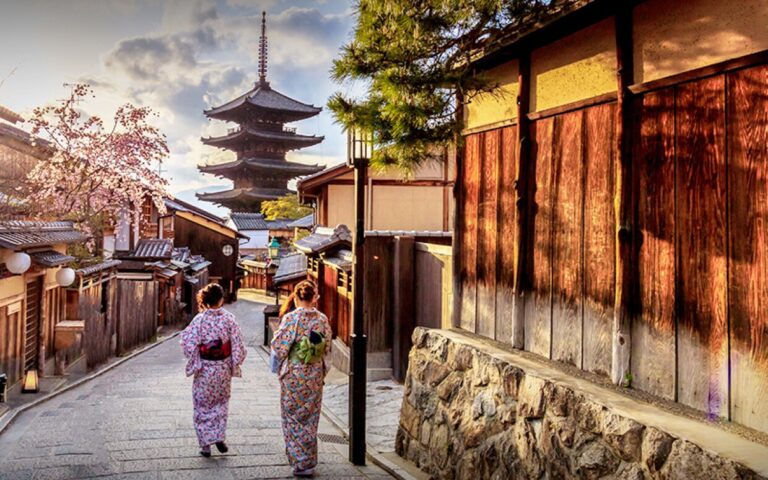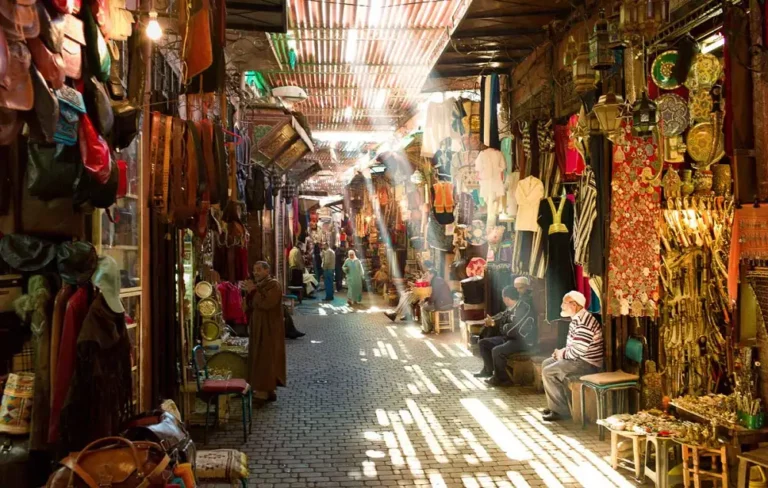Culture Tours: A Complete Guide to Immersive Travel Experiences
Travel has long been associated with relaxation, sightseeing, and adventure, but a growing trend is changing the way people view their journeys. Culture tours offer travelers the opportunity to immerse themselves in history, art, traditions, and local ways of life. Unlike standard vacations that focus only on famous attractions, culture tours prioritize meaningful experiences and deep connections with the people and heritage of a destination.
Through carefully curated itineraries, participants learn more than just surface-level information. They uncover the stories behind landmarks, witness traditions firsthand, and engage with communities in ways that foster understanding and respect. This makes culture tours both educational and transformative.
What Makes Culture Tours Unique
Culture tours stand apart because they are designed with enrichment in mind. Instead of rushing through multiple destinations in a short period, these tours focus on quality experiences that highlight the essence of a place. Whether it’s exploring the architecture of an ancient city, attending a traditional festival, or learning regional crafts, culture tours emphasize depth over speed.
Guides on culture tours are often historians, anthropologists, or local experts who provide valuable insights. They help travelers see beyond appearances, explaining the significance of rituals, art forms, and historical narratives. This transforms a simple trip into an educational journey, offering participants not just memories, but knowledge and appreciation.
The Role of Technology in Modern Culture Tours
Technology has significantly improved how travelers experience cultural tours. With digital resources, participants can access background information before their trip, enriching their understanding of the places they will visit. Apps and online platforms allow travelers to read about local customs, listen to expert talks, and preview cultural sites through virtual tours.
During the trip itself, technology enhances navigation, translation, and learning. Mobile apps provide real-time translations that make interacting with local communities easier. Augmented reality tools can overlay historical reconstructions onto ruins, helping participants visualize how a site looked centuries ago. While the essence of culture tours remains authentic engagement, technology ensures that travelers get the most out of their experience without barriers.
Real-World Examples of Culture Tours
European Renaissance Tour

One of the most popular examples of a culture tour is the European Renaissance Tour, where travelers journey through Italy and France to explore the rebirth of art and knowledge that shaped Europe. Participants visit Florence, Rome, and Paris while gaining insights into the works of Michelangelo, Leonardo da Vinci, and Raphael.
This tour goes beyond admiring paintings in galleries. Travelers learn how Renaissance ideas influenced science, architecture, and society. The combination of expert-led talks, guided museum visits, and city explorations makes this tour a perfect example of cultural immersion.
Japan Heritage Tour

Another example is the Japan Heritage Tour, which introduces participants to the harmony between tradition and modernity in Japanese culture. This tour includes tea ceremonies, visits to Buddhist temples and Shinto shrines, and hands-on experiences like calligraphy and kimono dressing.
Guides explain the philosophies behind these traditions, helping travelers understand their spiritual and cultural significance. By engaging in local practices, participants gain a personal connection with Japanese culture that goes far beyond sightseeing.
The Silk Road Expedition

For travelers seeking a historical adventure, the Silk Road Expedition is a cultural tour that follows ancient trade routes through Central Asia. This journey highlights the exchange of ideas, religions, and art between East and West.
Participants explore markets, caravanserais, and archaeological sites across Uzbekistan, Kyrgyzstan, and China. The tour not only showcases cultural artifacts but also emphasizes the importance of intercultural exchange in shaping global history. It’s a living classroom for those curious about how civilizations influenced one another.
Egyptian Civilization Tour

The Egyptian Civilization Tour is another powerful example of a culture tour that delves into one of the world’s oldest societies. Travelers visit the pyramids of Giza, the temples of Luxor, and the Valley of the Kings, guided by Egyptologists who explain the cultural and religious significance of these sites.
This tour combines awe-inspiring monuments with deep historical insights, allowing participants to understand not only the grandeur of Egyptian architecture but also the spiritual beliefs that drove such creations. Sailing along the Nile adds another dimension to experiencing the lifeline of ancient Egypt.
Indigenous Australia Experience

Culture tours are not limited to historical civilizations; they also highlight living traditions. The Indigenous Australia Experience takes travelers into Aboriginal communities where they can learn about Dreamtime stories, traditional art, and survival techniques in the Outback.
This tour emphasizes respect for indigenous knowledge and traditions. By participating in workshops, attending storytelling sessions, and walking on sacred lands, travelers gain an appreciation of cultures that have thrived for tens of thousands of years.
Benefits of Culture Tours
The benefits of culture tours extend far beyond entertainment. They provide travelers with education, empathy, and enrichment that ordinary tourism cannot match. One of the main advantages is the opportunity to see the world through the eyes of local communities, creating meaningful cross-cultural understanding.
Culture tours also support sustainable tourism by contributing directly to local economies and preserving heritage sites. Instead of mass tourism that can overwhelm destinations, these tours encourage mindful travel that values respect and conservation.
Another practical benefit is personal growth. Travelers often find themselves more reflective, open-minded, and appreciative of diversity after participating in cultural tours. This transformation makes such journeys memorable in ways that last a lifetime.
Practical Use Cases of Culture Tours
Culture tours are not only enjoyable but also solve real-world needs for travelers who seek more than superficial experiences.
- For lifelong learners: These tours act as educational journeys, making history, art, and anthropology come alive outside classrooms.
- For families: Parents use culture tours as opportunities to expose their children to global diversity, instilling curiosity and respect at a young age.
- For professionals: Teachers, writers, and researchers often use culture tours as sources of inspiration and knowledge.
- For mindful travelers: Those tired of fast-paced tourism find in culture tours a slower, more meaningful approach that aligns with sustainable travel values.
Each use case highlights how culture tours address the demand for depth, authenticity, and responsible exploration in modern travel.
FAQ
What is the main purpose of culture tours?
The main purpose of culture tours is to provide travelers with immersive experiences that focus on history, traditions, art, and local ways of life, offering a deeper understanding rather than surface-level tourism.
Who should consider joining a culture tour?
Culture tours are ideal for lifelong learners, history enthusiasts, families, professionals seeking inspiration, and anyone who values meaningful travel experiences over fast-paced sightseeing.
How do culture tours differ from regular tourism?
Unlike regular tourism, which often emphasizes famous attractions and leisure, culture tours prioritize education, authentic engagement with local communities, and deeper insights into heritage and traditions.





